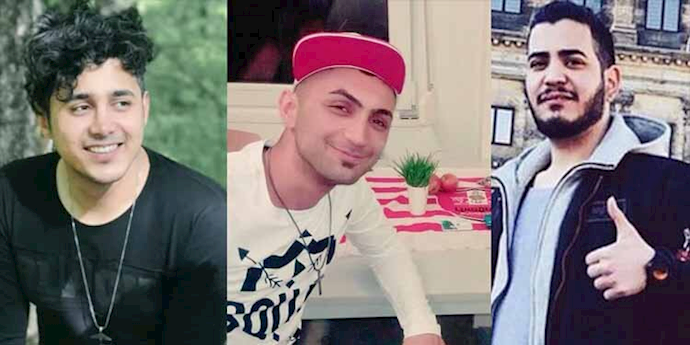Reporting by PMOI/MEK
Iran, June 25, 2020—The Iranian regime’s Supreme Court has upheld death sentences issued for Amir Hossein Moradi, Saied Tamjidi and Mohammad Rajabi, three political prisoners arrested during Iran’s November 2019 nationwide uprising, according to a report published on Wednesday, June 24, on the Hrana website.
One of the lawyers of these three inmates, who spoke on the condition of anonymity, confirmed the report. It is worth noting that Amir Hossein Moradi, Saied Tamjidi, and Mohammad Rajabi were sentenced to death by Abolghasem Salavati in Branch 15 of the regime’s so-called Revolutionary Courts in Tehran. Salavati is known for his long history of issuing death sentences for political prisoners and other regime dissidents. In December 2019, the U.S. Treasury Department sanctioned Salavati for "censorship or other activities that prohibit, limit, or penalize the exercise of freedom of expression or assembly by citizens of Iran.
These three political prisoners have in all their court hearings protested being placed under vicious torture by regime authorities.
On February 18, 2020, the regime’s judiciary spokesperson accused the three of being “riot leaders” who had “set fire to banks and petrol stations during the nationwide protests and had filmed their acts and sent the videos to foreign media”. As a result, they were sentenced to between 11 and 16 years behind bars and flogging on a variety of charges.
The trial of the three men, which took place on 5-6 January 2020, was grossly unfair, according to Amnesty International.
The regime’s oppressive state security forces identified and arrested 25-year-old Moradi using CCTV footage obtained during the November 2019 protests. He was held for a week in a detention center of the Ministry of Intelligence & Security (MOIS) in Tehran before being transferred to Tehran’s notorious Evin prison for a month. Moradi was then placed under torture and other ill-treatment, including beatings, electric shock treatment and even an interrogator standing on his chest.
Moradi said he only “confessed” after regime interrogators pledged to provide medical treatment for his injuries, which they later refused. He was also tortured and coerced to appear on state-run television to make “confessions” against himself. The televised confession was used as evidence by the regime’s prosecutor to convict the three in the kangaroo court hearings.
Mohammad Rajabi, 25, and Saeed Tamjidi, 27, were arrested on December 28, 2019 and held initially in an MOIS detention center located in Tehran. They have also said they were subjected to torture and other ill-treatment, including being kicked, beaten with batons and hung upside down while repeatedly receiving heavy blows to their legs and feet.
All three political prisoners have been denied access to a lawyer during the investigation phase of their case. This, as always, raises serious questions about the due process denied to defendants, especially political prisoners, in the so-called courts of the mullahs’ judiciary.





